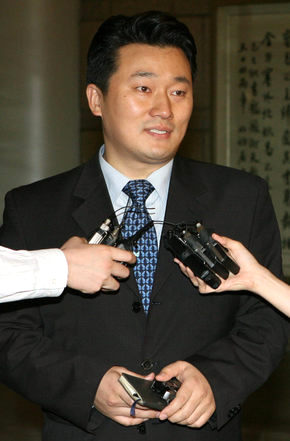 |
The controversial audio recording by the National Intelligence Service contained conversations between a Samsung Group executive, and the then publisher of the vernacular daily JoongAng Ilbo, in which the two allegedly discussed plans to bribe ruling and opposition runners ahead of the presidential poll. Lee was indicted on charges of violating the Protection of Communications Secrets Act after his report on the tape was aired in July 2005. Although Lee used the illicit recording to back up his report and violated the communications privacy of the two people involved in the dialogue as a result, he seems not to have strayed too far from journalism ethics, the judge said. The report shook the nation, sparking strong public criticism of the intelligence agency's illegal eavesdropping, the business practices used to bribe politicians and the arguments about press freedom versus people's rights to private communication. The two interlocutors potentially victimized by the wiretapping were Hong Seok-hyun, former JoongAng Ilbo publisher and then-ambassador to the United States, and Lee Hak-soo, the then-vice chairman of Samsung's corporate restructuring headquarters. The report forced Hong to resign from his ambassadorial post, and prosecutors later found hundreds of similar tapes believed to contain illegally wiretapped conversations between business, political and news media leaders. Two former NIS chiefs, Lim Dong-won and Shin Kun, each received three-year suspended sentences for ordering the eavesdropping to be carried out when they served under the Kim Dae-jung administration. Seoul, Aug. 11 (Yonhap News)





